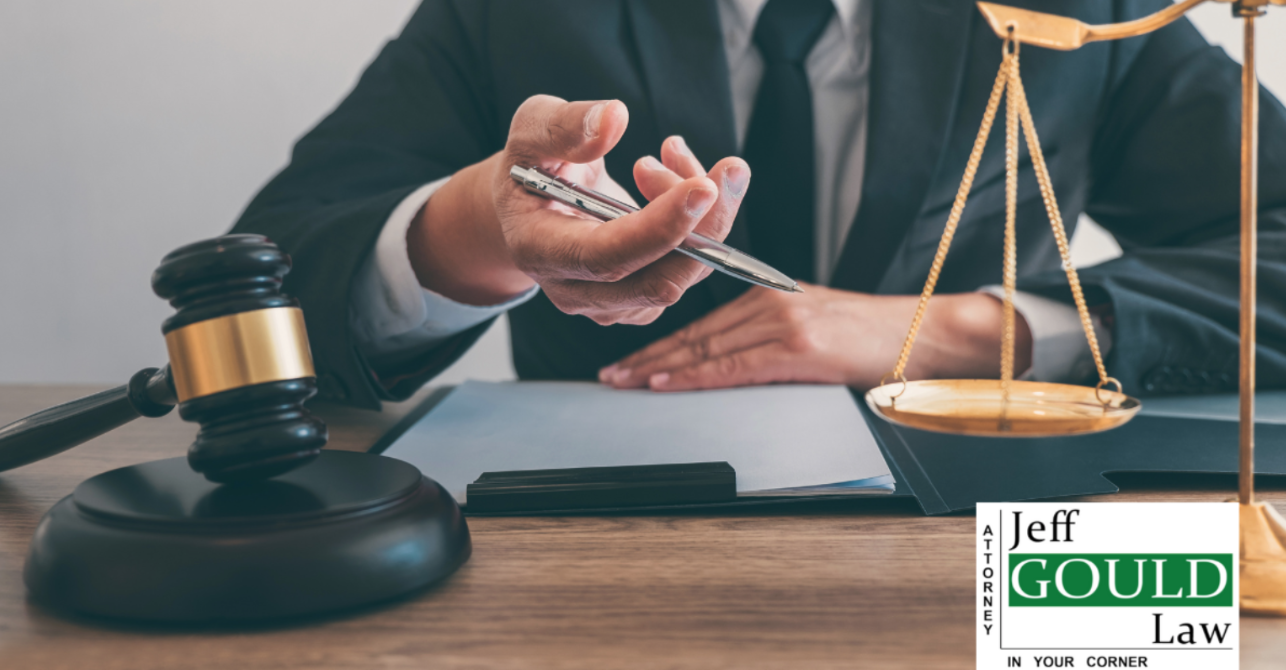Arizona Criminal prosecution develops in a series of stages, starting with a crime being committed and ending at some point before, during, or after the trial. While most criminal cases end when the criminal defendant takes a plea bargain, some cases may go to trial. It’s important to understand how the criminal justice process is carried out. Take a look at the 5 steps in the Arizona Criminal justice process.
1st Step in the Criminal Justice Process: Arrest
Criminal prosecution typically begins when an arrest is made by an officer. A police officer may arrest an individual if (1) they observe the individual commit a crime; (2) they have probable cause to believe that the individual has committed a crime; or (3) if the officer holds a valid arrest warrant for the individual. After the arrest, the officers complete the booking process and place the suspect in custody. If the alleged offense is a minor one, the suspect may be issued a citation with instructions to appear in court at a later date.
If a suspect in custody is granted bail, they may pay the bail amount in exchange for release, contingent on the suspect’s promise to return to court at a later date. This may be done immediately after booking or at a separate bail hearing.
2nd Step in the Criminal Justice Process:
Arraignment
A suspect makes their first court appearance at the arraignment. During the arraignment, the judge will read the charges against the defendant, and the defendant may choose how to plead. The judge will also review the defendant’s bail and set dates for future proceedings.
- Preliminary Hearing or Grand Jury Proceedings
The government generally brings criminal charges in one of two ways: a preliminary hearing or a grand jury indictment. In the federal system, cases must be brought by indictment, but states may use either process. Both preliminary hearings and grand jury indictments are to establish the existence of probable cause. If no probable cause is found, a defendant will not be forced to stand trial.
A preliminary hearing is a proceeding in which the counsel questions witnesses and both parties make their arguments. At this time, the judge makes the ultimate finding of probable cause. Contrarily, the grand jury hears only from the prosecution. The grand jury may call their own witnesses or request further investigation and decides if there is ample evidence to indict the defendant.
3rd Step in the Criminal Justice Process:
Trial
Trial begins once pre-trial motions are brought by both parties to establish what will be admissible at trial. At the trial, the judge or jury will find the defendant guilty or not guilty. In a criminal trial, the prosecution bears the burden of proof, so the prosecution must prove beyond a reasonable doubt that the defendant is guilty. If a unanimous verdict is not reached, the judge may declare a mistrial, and the case will either be dismissed or a new jury will be selected. If the judge or jury finds the defendant guilty, the defendant will be sentenced by the court.
4th Step in the Criminal Justice Process:
Sentencing
During the sentencing of a criminal case, the court will decide an appropriate punishment for the convicted defendant. When determining a suitable sentence, a number of factors will be considered, including the severity and nature of the crime and the defendant’s criminal history. Probation, fines, or a prison sentence may all be considered.
Once an individual is convicted of a crime and a sentence is determined, the individual may request that the case be reviewed by a higher court. If a higher court finds an error in the case or the resulting sentence, the court may reverse the conviction or find that the case should be retried.
If you or someone you know faces criminal charges, be sure to consult an experienced criminal defense attorney. A knowledgeable criminal defense lawyer, like Jeff GOULD Law, the Attorney in YOUR Corner, can explain the specific court procedures in your jurisdiction and advise you on your options.
DISCLAIMER: The information on this blog/site is NOT, nor is it intended to be, legal advice. It is for general informational use only. You should consult an attorney for advice regarding your individual situation. Further, this information does not create an attorney-client relationship.


